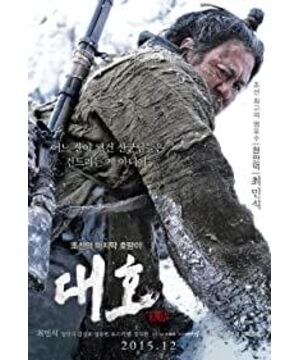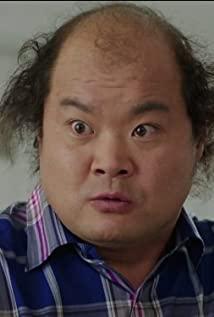Tigers are simple, all they want is one thing: to survive. Hunting creatures for food is to survive; attacking aggressors is to survive. Such a powerful body has such a simple soul, which has to be said to be the luck of mankind.
But people want more. Man needs not only to survive, but also power, property, and honor, and countless other things that are hard to sum up. Under the advancement of such needs, people will choose to loot and choose to take the initiative to attack. To be honest, there is not much difference between humans and tigers, they all kill for what they want. At this point, there is no moral difference between the two.
Qian Mande and One-Eyed Tiger seem to be different from these two groups.
Chimande is a simple hunter, hunting for survival, but he has a sense of morality, that is, he will not harm creatures for other reasons, and will also help weak new life. But his existence is still a tragedy. Because, even if he has a sense of morality, he has committed countless crimes that cannot be washed away in the process of hunting for a living. His hands were covered in blood. Karma brought him a terrible punishment. He accidentally killed his wife. This incident made him realize his sin and his karma, and Qianmande chose to wash his hands in a golden basin. He put away his gun and collected medicine for a living. However, no one told him that his karma did not end there.
One-eyed tigers are also very simple, to survive and reproduce. It is simple-minded, and anyone who breaks into its territory can be classified as aggressor, so it has taken countless lives, whether they were malicious or not. In these defenses, it inevitably kills innocents, thus leading to the birth of a hater. This karma makes it have to endure the pain of losing a child or a wife. In addition, it is a grateful existence, which adds a touch of humanity to its beast's eyes, and makes this tiger look like a spirited fairy. However, although it is grateful to Qian Mande for releasing and feeding, it will not forget that its mother died because of this benefactor's bullet. Qian Mande is a benefactor and an enemy. For the sake of kindness, it once spared his son Shi, but after Shi shot it, it did not show mercy again.
Shi did not have the moral consciousness of his father. He wants to get it, he wants to marry the girl he likes, so he needs money. Hunting tigers was the quickest way for him to raise money. He was naive, unaware of his extreme weakness, let alone that his actions were completely aggression and hurt. So he endured this karma. His death, from the eyes of us outsiders, cannot be said to be an innocent tragedy. But his ignorance also stemmed from his father's silence and indifference. Therefore, his father also suffers karma. Yes, even if Qianmande put away his gun because of guilt, he did not pass on this knowledge to his next generation. Instead, he chose to hide his sins. This indirectly contributed to the son's innocence and his death.
The one-eyed tiger returned the stone to Qianmande. As if telling him that this is my crime and yours. you and me, you and me. Later, he came to Qianmande with scars and wounds, and once again told him that you and I are going to end this karma. Chimande understood. He said softly: you and me. Then he burned down the house, grabbed the gun again, climbed to the top, and said to Da Hu, "Let's make a break."
However, Da Hu finally wanted to let him do it once. This behavior made the big tiger look more noble. It turned out that it was aware of its own karma, it was strong, and it wanted to end it by itself. What it fails to realize is that Qianmande also wants to end his karma. The karmic entanglement between the two cannot be ended because of its unilateral self-destruction. In the roar of Qianmande full of anger and unwillingness on the edge of the cliff, it understood his awakening. So it tried its best to die with him.
The karma of the two is discussed here. Next, let's talk about haters.
Jiujing is a catcher who lacks conscience. Since the formation of this character, his evil fate has been planted. He killed the tiger's mother and wanted to kill two cubs. Later, in the encounter with the tiger, his wife was killed, but he survived. At this time, half of his innocence died, replaced by boundless hatred. His hatred is very terrible. On the one hand, it comes from the karma of the one-eyed tiger, and on the other hand, it comes from the karma of human nature. This hatred made his life only evil and no good intentions. Shi turned to him for help before he died, and he chose not to help him, still driven by hatred. That evil makes his character a downright tragic. It seems that he cannot be redeemed. However, to untie the bell, the bell must be tied, and the only one who can end his hatred and his karma is Dahu. The tiger ended him. Before dying, Jiu Jing realized. He said to his fellow catcher: "Never be afraid. The catcher is born in the mountains to die." The destiny he speaks of is the karma of the catcher. He raised his head and looked to the sky. He saw birds flying in circles, as if to imply that karma that goes round and round goes on forever. He understood that his own death could end a karma. His last sentence was: "I'll just die like this."
Although the film chose the World War II period of Japanese aggression, I don't think it's a simple struggle film. In my mind, "Big Tiger" is not even a film that celebrates the power of human nature. Some film critics said that "Big Tiger" is the Korean people symbolize themselves as a powerful tiger resisting the invaders. This interpretation is really laughable and generous. The film chose this period, just want to use the times to enlarge. It wants to say that no matter how human beings violate others, loot and harm them by any means for their own benefit, karma will eventually come back to themselves. We can see that in the movie, the invaders are not only the Japanese army, the catcher team is the invader, Jiujing is the invader, Shi is the invader, and Qianmande was also the invader. They all died of karma in the end, at the hands of Dahu. The tiger is the only guardian in the film.
But the tiger is more than just a guardian. Its mission is not only defense and self-protection, not only to resist aggression, but not to release the anger of an individual or a nation. Its mission is to arrange results for all these karma.
Listen, the tiger stands on the top, and its roar resounds through the mountains -
that is the mourning song of karma.
View more about The Tiger reviews











